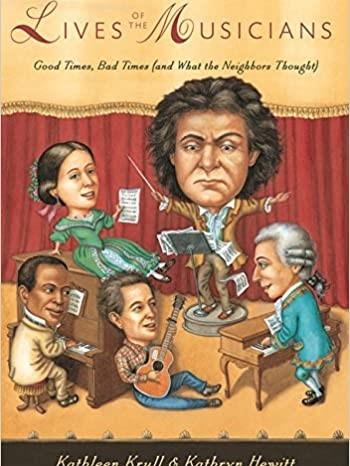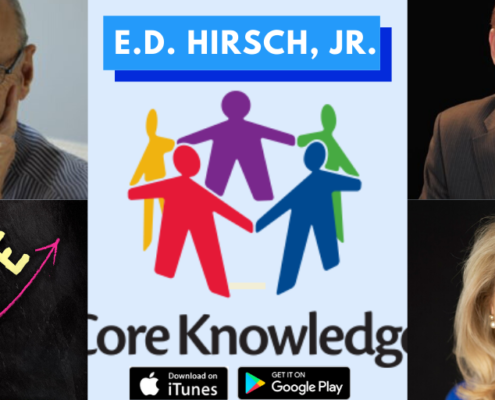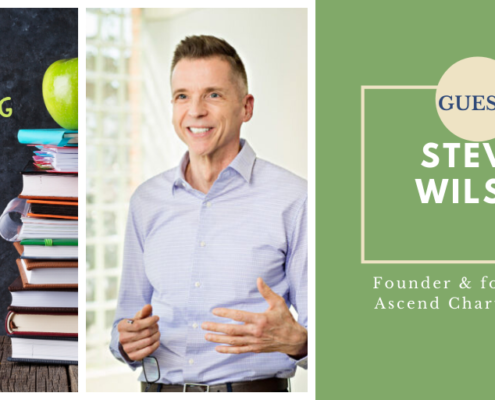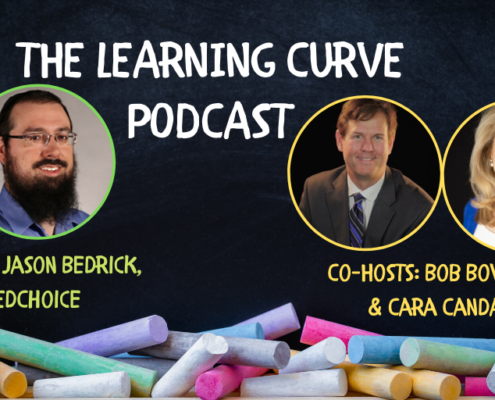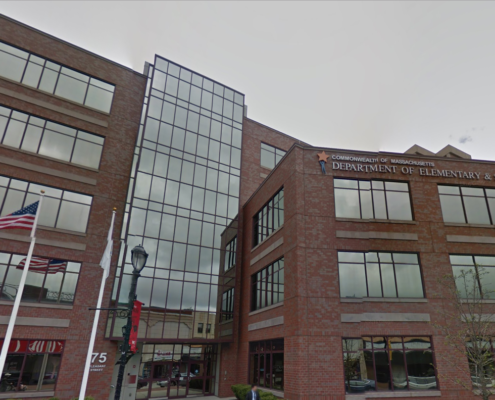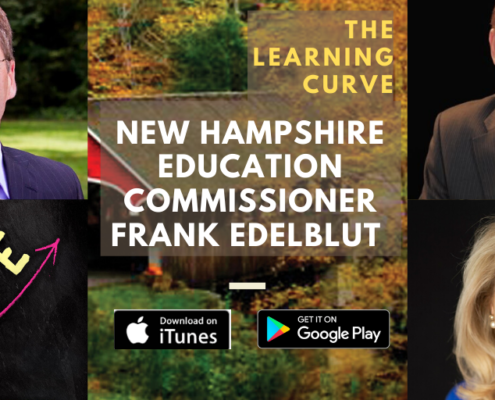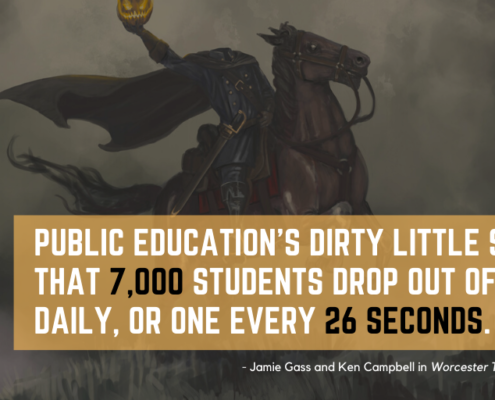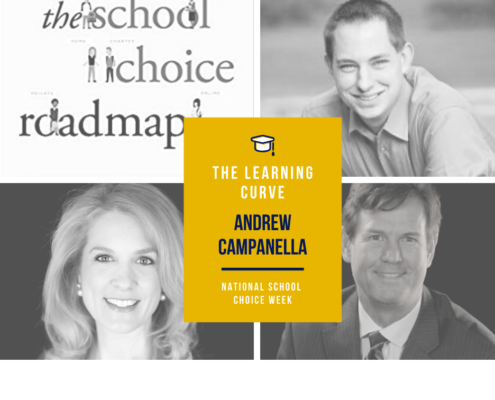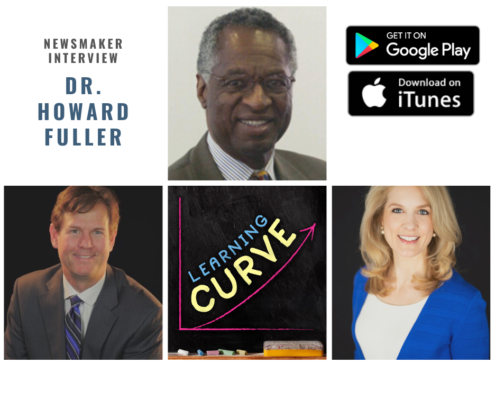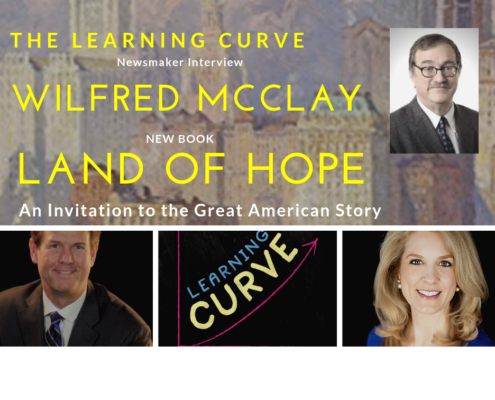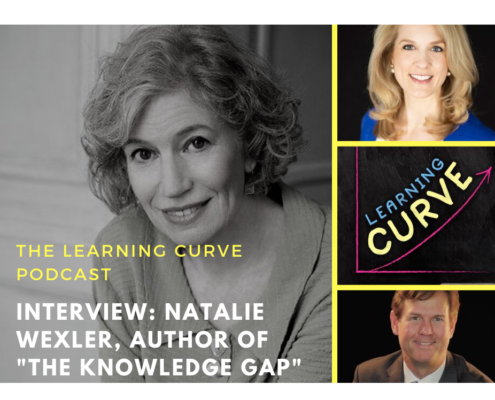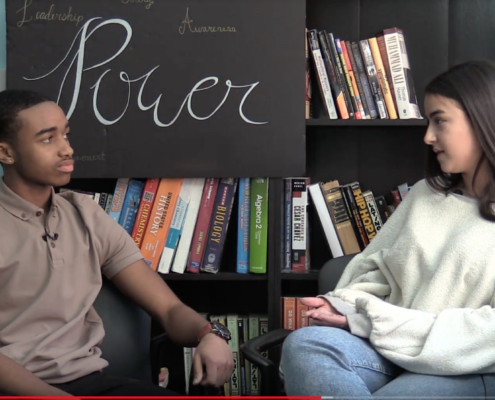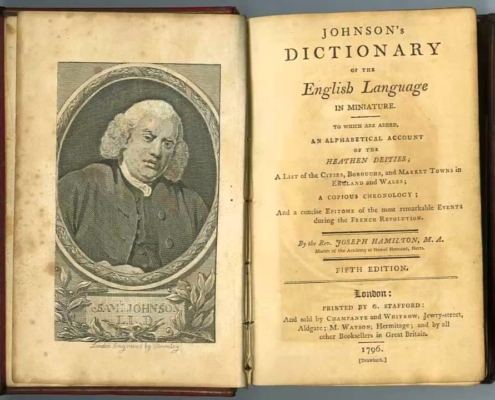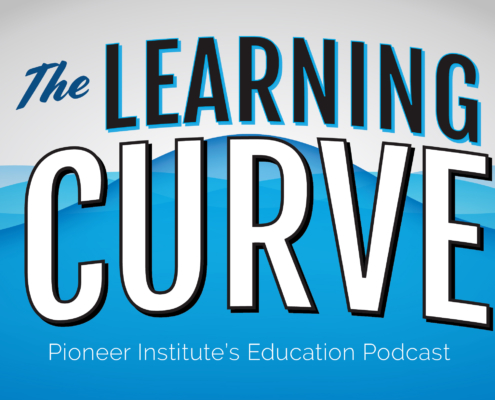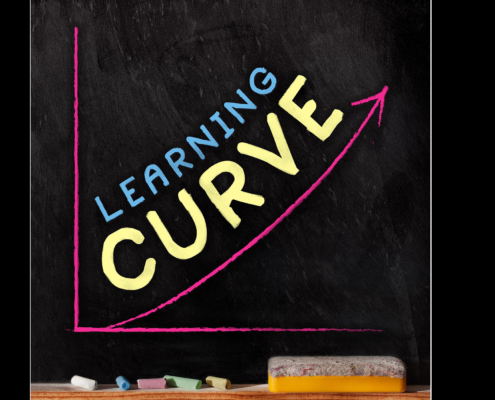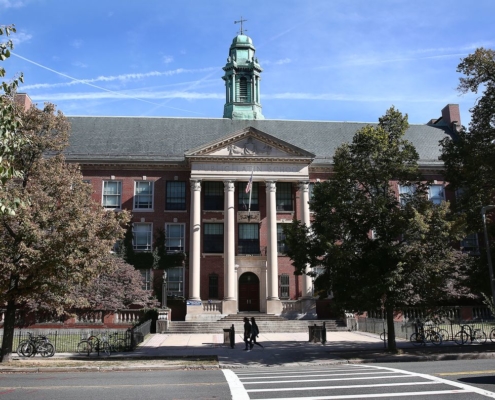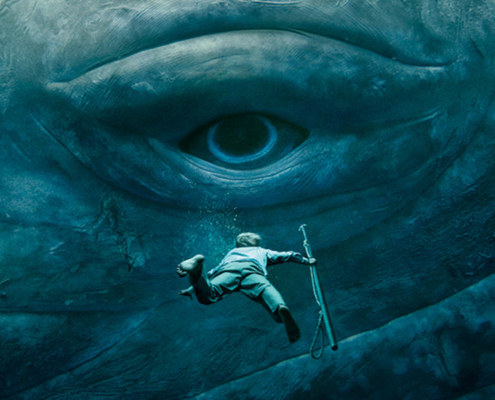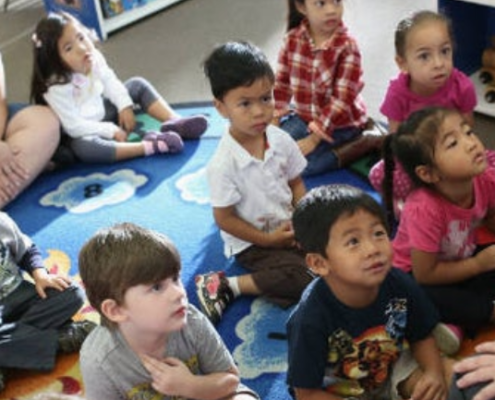“Music is liquid architecture” – 15 Resources for K-12 Education
Louis Armstrong, Life magazine, cover of the April 15, 1966 issue,
“Music is liquid architecture” – Johann Wolfgang von Goethe
In Pioneer’s ongoing series of blogs here, here, and here on curricular resources for parents, families, and teachers during COVID-19, this one focuses on: Introducing K-12 schoolchildren to timeless music.
“Musical training is a more potent instrument than any other, because rhythm and harmony find their way into the inward places of the soul, on which they mightily fasten,” reads Plato’s Republic from 375 BC. Given this ancient wisdom, and the fact that music is too often neglected in K-12 American education, we’re offering a variety of classical, folk, gospel, blues, jazz, and country music resources for parents, teachers, and schoolchildren to explore, including:
1 ) Classics for Children: Peter and the Wolf; Carnival of the Animals; Nutcracker Suite, conducted by Arthur Fiedler and the Boston Pops and narrated by Sir Alec Guinness (ages 4 and up)
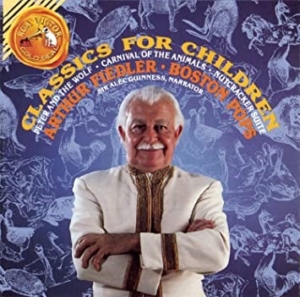
“What can be better than Peter and the Wolf narrated by Alec Guinness? Then you even get the best parts on The Nutcracker too. I bought this to replace my old one which had gotten scratched and I couldn’t live without it.”
2 ) Maestro Classics 12 CD Collection (ages 5 and up)

“The Maestro Classics 12 CD Collection includes all 12 CDs from the award-winning Stories in Music series. Each CD contains a 24-page activity book. Set includes: Peter the Wolf, The Nutcracker (featuring Jim Weiss), The Story of Swan Lake, Carnival of the Animals, My Name is Handel: The Story of Water Music… Casey at the Bat, The Sorcerer’s Apprentice, The Soldier’s Tale and Juanita the Spanish Lobster (English edition).”
3 ) Lives of the Musicians: Good Times, Bad Times (and What the Neighbors Thought), by Kathleen Krull (ages 8-12)
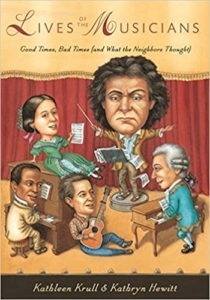
“Kids learn best when they can get back stories into the personal lives of historical figures, especially if they are fun, funny, or outrageous! The book is glossy paged with vivid colorful artwork. This is going to be a fantastic supplement to our homeschooling music history studies.”
4 ) Getting to Know You!: Rodgers and Hammerstein Favorites, illustrated by Rosemary Wells (ages 4-8)
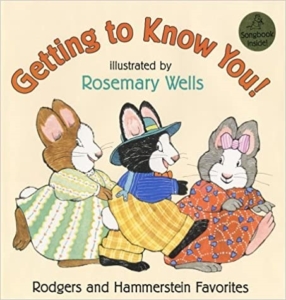
“This curious little picture book sets out to accomplish the odd–but surprisingly worthwhile–task of assembling some classic Rodgers & Hammerstein lyrics into a kid-friendly, sing-along format. Getting to Know You! samples songs from some of the Broadway duo’s better-known musicals (Oklahoma!, Carousel, South Pacific, and The King and I), acting them out with a cast of cute animals…”
5 ) Hallelujah Handel, by Douglas Cowling (ages 4-6)
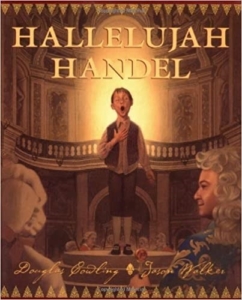
“Thomas, a street urchin in eighteenth-century London, is mute except when he sings. He and his friends live under the control of the Keeper, a wicked man who hires him out to sing for the gentry, including George Frederic Handel. When Thomas disappears one day, his friends enlist the composer’s help in finding him. Studded with references to Handel’s life and works…”
6 ) How Sweet the Sound: The Story of Amazing Grace; By and By: Charles Albert Tindley, the Father of Gospel Music; John Was a Jazz Giant: A Song of John Coltrane Before John Was a Jazz Giant: A Song of John Coltrane; RESPECT: Aretha Franklin, the Queen of Soul, The Sound that Jazz Makes; and The Roots of Rap: 16 Bars on the 4 Pillars of Hip-Hop, by Carole Boston Weatherford (ages pre-school to 3)
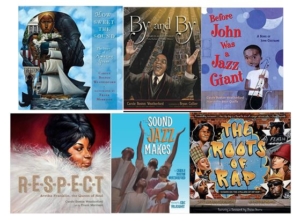
“An incredibly moving picture book biography of the man behind the hymn “Amazing Grace” and the living legacy of the song Caldecott Honor–winning author Carole Boston Weatherford and award-winning illustrator Frank Morrison.”
7 ) The Long Gone Lonesome History of Country Music, Bret Bertholf (ages 6-9)
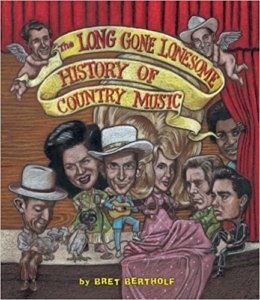
“This tongue-in-cheek overview features a folksy narrative of how and why country music developed in the barns and back roads of rural America. The text doesn’t miss a beat—it covers instruments, early recordings, yodeling (with a humorous spread on how-to), the Great Depression, gospel, movie cowboys, a “paper-doll” spoof of singers’ costumes, hillbilly jazz, World War II, acceptable country pets (hound dogs, varmints, hawgs), country “vee-hickles,” Nashville, the age of TV, the 1990s explosion of country sound, and much more. While poking fun at itself with a “country words” dictionary and a segment on “country hair,” the book offers a vast amount of historical fact amid a multitude of caricatures of country stars.”
8 ) Tito Puente, Mambo King, by Monica Brown (ages pre-school to 4)

“In this vibrant bilingual picture book biography of musician Tito Puente, readers will dance along to the beat of this mambo king’s life. Tito Puente loved banging pots and pans as a child, but what he really dreamed of was having his own band one day. From Spanish Harlem to the Grammy Awards—and all the beats in between—this is the true life story of a boy whose passion for music turned him into the “King of Mambo.””
9 ) Beethoven’s Heroic Symphony (Once Upon a Masterpiece), by Anna Harwell Celenza (ages pre-school to 3)

“Discover the little-known story of Beethoven’s beloved masterwork. As the best pianist in Vienna, Ludwig van Beethoven had everything: talent, money, fame. But he also had a terrible secret. He was slowly going deaf. Though his hearing deserted him, the maestro never lost his music.”
10 ) Becoming Bach, by Tom Leonard (ages 5-8)

“On this elegantly composed biography, Johann Sebastian shares his dream of one day following in his family’s footsteps and becoming a “bach,” that is to say, a musician. For the young dreamer, “there was always music.” Fascinated by different musical instruments, from the harpsichord and violin to the flute and organ, Johann Sebastian Bach (1685–1750) learns to play them all. After the death of his parents, he goes to live with his older brother, who gives him music lessons, setting the boy on his journey to greatness.”
11 ) Martin Scorsese Presents The Blues: A Musical Journey (high school to adults)
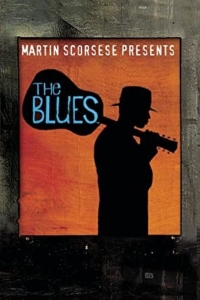
“Martin Scorsese’s homage to the blues is a truly significant, if imperfect, achievement. “Musical journey” is an apt description, as Scorsese and the six other directors responsible for these seven approximately 90-minute films follow the blues–the foundation of jazz, soul, R&B, and rock & roll–from its African roots to its Mississippi Delta origins, up the river to Memphis and Chicago, then to New York, the United Kingdom, and beyond… There’s also plenty of documentary footage, interviews, and contemporary studio performances recorded especially for these films.”
12 ) Ken Burns: Jazz, and Country Music (high school to adults)
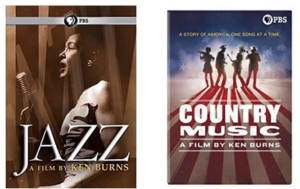
“Jazz is a ten part series that explores the evolution – and the genius – of America’s greatest original art form, focusing on the extraordinary men and women who could do something remarkable – create art on the spot. Jazz celebrates their profoundly enduring, endlessly varied, and infinitely alluring music in the context of the complicated country that gave birth to and influenced it, and was in turn transformed by it. The series offers complex and engaging portraits of many of the greatest figures in jazz – among them Louis Armstrong, Duke Ellington, Benny Goodman, Bix Beiderbecke, Fletcher Henderson, Charlie Parker, Sarah Vaughan, Count Basie, Dizzy Gillespie, Billie Holiday, John Coltrane and Miles Davis.”
13 ) The Folk Songs of North America and American Ballads and Folk Songs, by Alan and John Lomax (high school to adults)
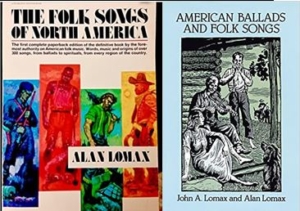
“A book to cherish permanently.” — The New York Times. With this ample collection of authentic ballads and songs, you can immerse yourself in the rich tradition and heritage of American folk music. Discover the diversity, spontaneity, free-flowing melody, and sheer invention of scores of songs sung by cowboys and convicts, lumberjacks, hobos, miners, plantation slaves, mountaineers, soldiers, and many others. One of the remarkable features of this collection is its authenticity. Many of the songs were recorded “on location” by noted folklorist John A. Lomax and his even more famous son, Alan, as they traveled around the United States.”
14 ) Itzhak, by Alison Chernick’s (high school to adults)
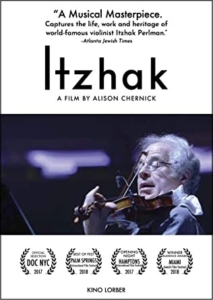
“From Schubert to Strauss, Bach to Brahms, Mozart to…Billy Joel, Itzhak Perlman’s violin playing transcends mere performance to evoke the celebrations and struggles of real life; “praying with the violin,” says renowned Tel Aviv violinmaker Amnon Weinstein. Alison Chernick’s enchanting documentary Itzhak looks beyond the sublime musician, to see the polio survivor whose parents emigrated from Poland to Israel, the young man who struggled to be taken seriously as a music student when schools saw only his disability. As charming and entrancing as the famous violinist himself, Itzhak is a portrait of musical virtuosity seamlessly enclosed in warmth, humor, and above all, love.”
15 ) The Triumph of Music: The Rise of Composers, Musicians, and Their Art, by Tim Blanning (high school to adults)
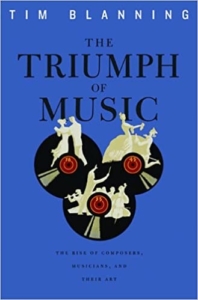
“A distinguished historian chronicles the rise of music and musicians in the West from lowly balladeers to masters employed by fickle patrons, to the great composers of genius, to today’s rock stars. How, he asks, did music progress from subordinate status to its present position of supremacy among the creative arts? Mozart was literally booted out of the service of the Archbishop of Salzburg “with a kick to my arse,” as he expressed it. Yet, less than a hundred years later, Europe’s most powerful ruler—Emperor William I of Germany—paid homage to Wagner by traveling to Bayreuth to attend the debut of The Ring. Today Bono, who was touted as the next president of the World Bank in 2006, travels the world, advising politicians—and they seem to listen.”
Get Updates on Our Education Research
Related Content:

